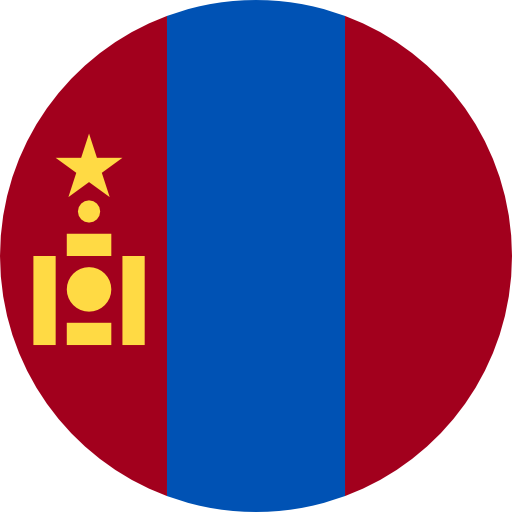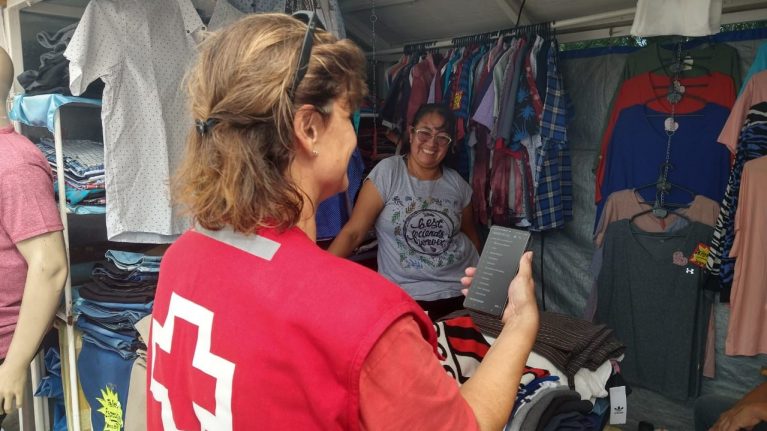Argentina
Background
The Community Trust Index (CTI) is a measurement tool used by Argentina Red Cross to assess and monitor the level of trust in their work with communities across the country. It evaluates trust in multiple dimensions including competencies such as reliability, technical proficiency and experience, and values such as ethics, integrity, and transparency. The community index was conducted in 17 provinces using a mixed approach.
Lead: Argentina Red Cross
Partners: IFRC Americas, Humanitarian observatory, Ground Truth Solution
Modules
Overall ScoreIndex scoreThe overall score is the average of the competences and values scores. The competency and values scores are the arithmetic mean of the scores for each sub-dimension. The sub-dimension scores are generated from the weighted average of the response rates to the questions relating to each sub-dimension, using the following weightings.
Results
With support from the regional and global CEA teams, the Argentina Red Cross conducted a mixed methods survey to measure perception of trust among service recipients and broader community in March 2023. The questionnaire was administered across 17 provinces, gathering data from 3017 respondents to ensure representative sampling. It's important to note that trust is a nuanced and evolving concept, influenced by a wide range of factors including historical events, economic conditions, political decisions, and cultural dynamics.
Community trust by population profile
The Community trust in the Argentina Red Cross can vary among different population groups, including volunteers, beneficiaries, and the general population. The following charts present the overall score among these profiles.
Volunteers
Volunteers are individuals who actively participate in various Argentina Red Cross programs, initiatives, or projects.
People receiving support
Individuals who directly receive benefits or support from Argentina Red Cross programs, such as social welfare, healthcare, or education initiatives.
Others
Individual who do not receive benefits or support from Argentina Red Cross programs or engaged with the Argentina Red Cross in general
Perceptions of community trust
It's important to note that community trust in the Red Cross is a complex and multifaceted concept. It is influenced by a range of factors beyond the population groups above, such as competencies or ethical values. The following charts explain which factors is contributing to the Community Trust Index in Argentina.
- Overall
- Volunteers
- Beneficiaries
Competencies
Values
Geographic analysis
Summary ReportIn this study, we explore perceptions of community trust in different regions of Argentina. By analysing data collected from different communities, we aim to shed light on the top 3 regions where community trust thrives and the bottom 3 regions where challenges to trust perceptions may be more pronounced.
Competencies
Top 3
Bottom 3
Values
Top 3
Bottom 3
Findings
With support from the regional CEA team and the Humanitarian Observatory of the Argentina Red Cross Society, the questionnaire was administered across 17 provinces, gathering data from 3010 respondents to ensure representative sampling. The findings indicate a positive level of community trust in essential competencies and values. However, aspects such as receptiveness to complaints and transparency in admitting mistakes were rated lower, suggesting a reluctance to publicly acknowledge significant shortcomings in the provision of support.
Strengthen transparency within the Red Cross Society is essential to maintain a high level of trust with communities. This requires a strategic and multi-faceted approach. Some critical considerations are already in place within the ARCS such as training on ethics and accountability which ensure a good transparency knowledge of the institution. However, improving transparency perception at community level requests additional community engagement actions.
Story from Argentina
I have been a Red Cross volunteer for more than four years in the Villa Crespo branch located at 6434 Cordoba Avenue and all I have to say about the community of which I am proud to be a part are nothing but wonders. Perhaps the contribution from my intervention is simple and not as dedicated as other volunteers who put their chest and soul to the activities that are done practically every day, the mere fact of accompanying them implies enough retribution for one to feel motivated to move forward and in cases like mine to contribute with whatever we can in order to put a grain of sand.
What can I say about the camaraderie that I have observed for years: Well, great is an ironic understatement. Everyone with whom I interact in the work either in the field or within the institution are excellent people who put their will so that every day we provide a better service to the community. People who truly represent the pillars that identify us and exemplify us at the same time. Each member shows their unity, impartiality, neutrality, universality, volunteerism, humanity and independence.
I am a substitute in case of important coverages, honestly I am at times insecure to take such high responsibilities as covering concerts that demand high and constant attention to the people who need our help. Even so, the times I go I feel accompanied and at the same time happy to return that company. Because we know how to work as a team and understand each other in both successes and failures. We support each other in the good times but mostly in the bad times. We put a hand on each other’s shoulder and give each other the confidence to support each other. It is as if one hand washes another hand or one foot serves as another’s crutch when needed.
We do not know “Failure”, we know “Learning”. We do not step on the fallen, we invite them to get up and if necessary we take them by the arms so that they can go back up if necessary. We do not know the denial but the acceptance, the acceptance that we are human and we are to learn and become better volunteers with the passing of days, weeks, months and years.
Maybe I still have a lot to learn, but this path is pleasant and necessary, anyway it serves to learn from the colleagues that make up this team and the fact that our hands tremble to make it possible and easier for those who need it is what I believe makes this affiliate unique.
“They work for free” I hear a couple of outside voices say very often. But I use the term “We have fun at no cost” because in my opinion there is nothing better on a social level and on a human level than belonging to something and making that belonging worthwhile, which rewards you with good times, learning and friendships. I can say that inside that madness (in the good sense) I have built genuine friendships and strong bonds, which only gave me things, things that make you realize that it was really a success to find the place that we formed as a team and we make it worth with every job and event we attend.
Because at the end of the day, some work in relief and help victims, some are in health promotion and give consent, others are in training and provide knowledge, also those in communication do their part to make us known, also those in logistics who carry out their assemblies and controls. In whatever area you are, we are all there and if you want to join this madness, be assured that we are waiting for you with our arms up.
Sampling
Population
- All Respondents
- Men
- Women
Region
Age Group
Limitations
The Community Trust Index
The Community Trust Index, developed by the IFRC Community Engagement and Accountability (CEA) Unit, is an evidence-based tool to measure and enhance trust between humanitarian organizations and the communities they serve. The Community Trust Index is measured through Competencies and Values.
 Mongolia
Mongolia  Nepal
Nepal  Tuvalu
Tuvalu  Zimbabwe
Zimbabwe 